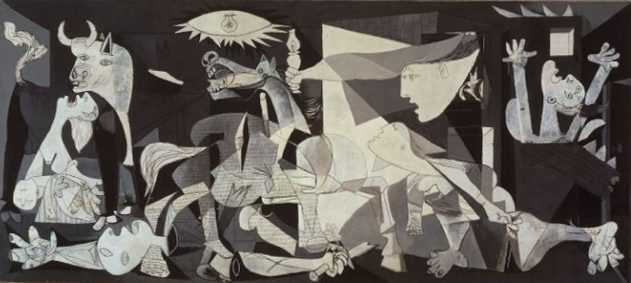It may seem odd to compare the famous evangelist Billy Graham with the infamous novelist Henry Miller. Topic of Cancer is probably not one of the books on the shelf in the Rev. Graham’s study.
But a recent interview with Graham’s grandson, Tullian Tchividjian, reminded me of a story about Miller and George Orwell and the Spanish Civil War.
Here, first, is part of that interview with Tchividjian in The Christian Post:
Over the last 30 years, the Religious Right has replaced Christianity’s foremost message of the Gospel with that of a political movement, argued the current pastor of Coral Ridge Presbyterian Church.
“We’re well known for saying things, ‘We exist to reclaim America for Jesus,’ and stuff like that and in the process what has been lost, is the message which I trumpet in [my book] One Way Love, which is God’s inexhaustible grace for exhausted sinners like you and me,” said Tchividjian. …
“Specifically the reason why Evangelicals in America are unliked by non-Evangelicals is because we’ve branded ourselves as a political movement. It’s not like Christians don’t have opinions about what’s going in our world and what’s happening in our culture; I think that we do, I do, we all do, but when the primary message that the world hears from us is, “We need to fix the world. …We need to stamp out all of the bad stuff,” they don’t hear the message that Jesus has entrusted in us,” continued Tchividjian.
… “Where there is a lack of love for others on the other side of the aisle, there in that moment we are not accurately representing the Christian faith,” said Tchividjian.
Tchividjian suggested that Evangelicals … emulate his grandfather.
“He has told me that the biggest mistakes he made early on his ministry, in the ’50s and early ’60s, was speaking too much about cultural and political issues at his evangelistic crusades. He says that’s one of his big regrets from his early years in ministry,” said Tchividjian.
And here is Nancy Caldwell Sorel’s account of that story about Miller and Orwell.
It was December, 1936, and Orwell was on his way to Spain to join the fight against Fascism. His only stop on the way was a brief visit, in Paris, with Miller:
Both men were dropouts from mainstream backgrounds. After Eton and five years with the Indian Imperial Police in Burma, Orwell had submerged himself in the underclass, had shared the lives of the poor and then surfaced to write Down and Out in London and Paris. But his actions were a means to inspire change, not, like Miller’s, an end in themselves, private forays into degradation and anarchy. The profoundly unpolitical Miller had no desire to change anything.
Certainly not in Spain. It was idiotic to go there out of a sense of obligation, he told Orwell, and this idea of defending democracy was plain stupid. Liberty was a personal thing; it allowed one to avoid public responsibility and live as one wished. Orwell, however, argued that liberty and democracy were important — think what fascism would do to the freedom of the artist. He confided his guilt at having aided imperialism in Burma. But had he not punished himself enough? Miller asked. Still, the earnestness of the younger man touched him. In later years they would disappoint each other — when Miller’s egoism surpassed his talents, when Orwell’s reviews were less flattering and Miller wrote him off as just another dumb English idealist. But that evening, in the studio lighted against the winter dark, Henry unearthed a warm corduroy jacket for George. It was his contribution to the Republican cause, he said, and he refrained from mentioning that he would have given Orwell the jacket no matter which side he had chosen to fight for.













